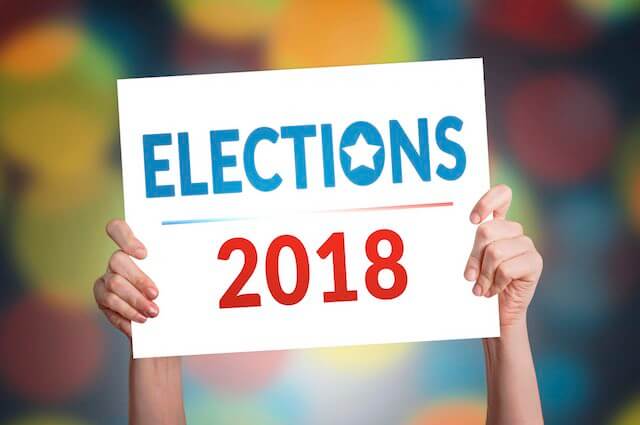Now that the 2018 mid-term elections are thankfully in our rearview mirror, Americans will again be able to watch television or surf the internet without being deluged with a never-ending flow of political ads. Regardless of political affiliation, that fact should please everyone.
Significant Election Results
Here are the most relevant results.
- Democrats now control the House of Representatives. Democrats gained 28 seats in the election.
- Republicans kept control of the Senate and gained at least three seats.
As a result of flipping the House, one of the most significant changes for federal employees will be that a Democrat will now be in charge of the House Oversight and Government Reform Committee. It is likely that this committee chairman will be Elijah Cummings, a Democrat from Maryland.
This means bills emanating from the committee (or in the House generally) will be more generous to federal employees. In the past two years, there has been an emphasis on topics such as increasing federal employee contributions to their future retirement pensions, cutting back on COLA increases, restricting the use of “official time” by federal union officials, and generally bringing federal pay and benefits to more closely align with average pay and benefits for private sector employees.
That emphasis will change with the House being controlled by Democrats.
Practical Impact of Election Results
Many of the proposals popping up in the House that would have impacted federal employee pay and benefits were never passed into law. Many never passed the House. While some bills passed in the House, getting the approval of the Senate on legislation has not been easy.
While the emphasis in the House will change with the shift in leadership, the practical impact is that getting a bill passed into law will be even more difficult than in the past two years. Legislation from the House will often reflect the preference of the majority party. Many of these bills will die a quiet death in Senate committees.
American voters often elect a divided government. There will be new proposals cropping up from a different emphasis in the House. We are likely to see investigations starting up, probably subpoenas being issued and new allegations of improper conduct. Some Democrats will spend their time and efforts seeking impeachment of President Trump.
With a divided Congress, legislation that passes into law (or at least legislation that gets sent to the president for signature), will be even more limited than was the case under Republican control of both Congressional chambers.
Federal Pay
One area that may work to the advantage of federal employees is on pay.
Appropriations bills start in the House. The new House configuration will be more likely to pass legislation for a higher pay raise. This means any pay raise for federal employees may be contained in new legislation rather than deferring to the preference of the president as has generally been the case in the past few years. In a very large appropriations bill, a one-line sentence granting a federal pay raise is relatively insignificant in the overall federal budget and more likely to be passed.
A change in the control of one or both Congressional chambers often leads to new legislation and a few surprises. We are likely to be surprised again in 2019 with the changes resulting from this mid-term election. Stay tuned for the impact this will have on federal employees in the next two years.



